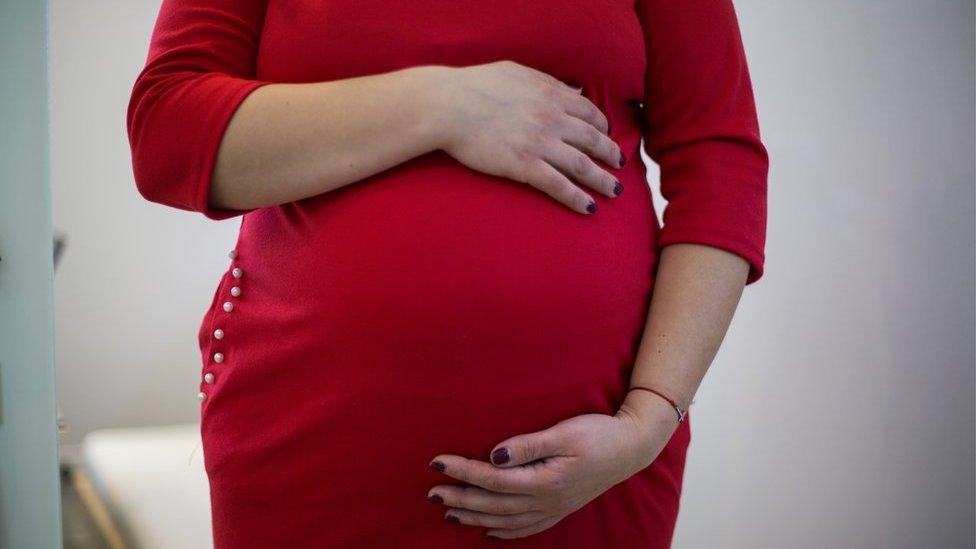Ukraine: Passport issued for surrogate baby following parents appeal
- Published
A couple from NI who had a baby through surrogacy in Ukraine appeal for urgent help.
A couple from Northern Ireland who had a baby through surrogacy in Ukraine have said it will be more than a week before they can bring him home.
Jaunty Beau was born on 31 January and his parents, Mary and Peter McDonnell, from Portaferry in County Down, have been trying to bring him home since.
The couple started their surrogacy journey before the war broke out.
A passport for the baby has now been approved but it could take up to 10 days to reach Ukraine.
The McDonnells told BBC News NI they explored surrogacy as an option after their 16-year-old daughter Ellie died in 2020.
Today, they live on a farm in Portaferry with their 15-year-old son Max.
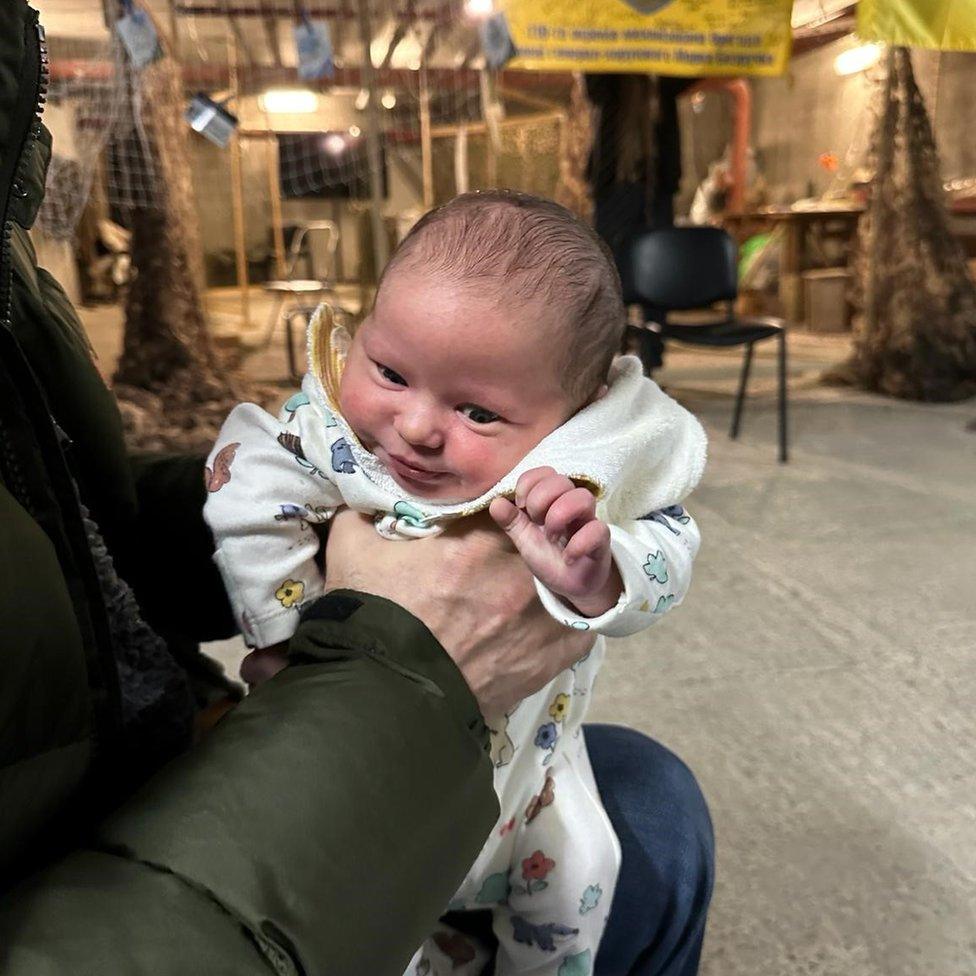
Jaunty Beau has had to spend time in an air raid shelter in Kyiv
Ellie had been involved in a farm accident the year before and, after the family thought she had recovered, she died in her sleep following an epileptic seizure.
"We still have more love to give, we wanted Max to grow up in a family that could still smile and be happy and give him a chance to have a good life. We couldn't fall apart when Ellie died," said Mary.
'We had to update our wills'
The couple decided to go down the surrogacy route and travelled to Ukraine in August 2021 for medical appointments and to get the embryos created.
When Russia invaded Ukraine, the surrogacy clinic evacuated the embryos but last year the couple were contacted to say the process could restart.
The embryos were successfully planted in the surrogate and the couple travelled to Kyiv in late January ahead of the baby being born.
The Foreign and Commonwealth office advises against all travel to Ukraine's capital.
"We had to update our wills and sign guardianship forms for our son who is back at home in case we didn't come back. It's very scary," said Ms McDonnell.
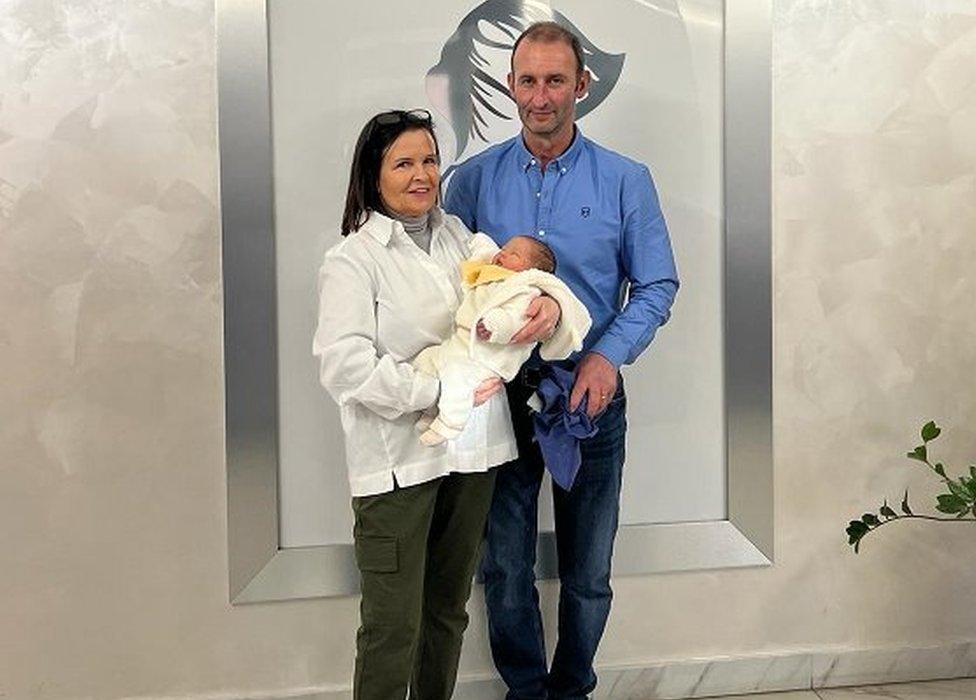
Mary and Peter McDonnell have appealed for help to get Jaunty Beau out of Ukraine and back to Northern Ireland
The couple's baby, Jaunty Beau, was born on 31 January.
Speaking to BBC News NI from Kyiv, Ms McDonnell said the situation was "terrifying".
'Don't let us get blown up'
"The air raid alarm goes off at night and you have four minutes to get to the shelter and you just have to lift the baby and run and that's what we do," she said.
"It's a very scary place, the people are very good to us and in the bomb shelter they gave us a couch to sit on with the baby.
"We're very frightened and every day you say please let us survive today, don't let us get blown up, because we have a boy at home, we want to survive."
The McDonnells said they had not been able to leave Ukraine as Jaunty Beau had not been issued with a British passport.
"There are a lot of legalities and paperwork. The next stage is an identity interview with Peter to look at his photographs, make sure he is who he says he is and that it's not child trafficking or anything like that," said Ms McDonnell.
The couple had a meeting scheduled with the passport office on 13 March and had been appealing for the meeting to be expedited.
After the couple spoke about their experience on Friday morning, the passport office contacted them to arrange an emergency meeting.
The passport office confirmed to the family that a passport has been issued for Jaunty Beau.
It should arrive in Ukraine in around 10 days and then the family will be able to travel home.
Earlier on Friday, the first and deputy first ministers said they would be contacting the Home Office on behalf of the family.
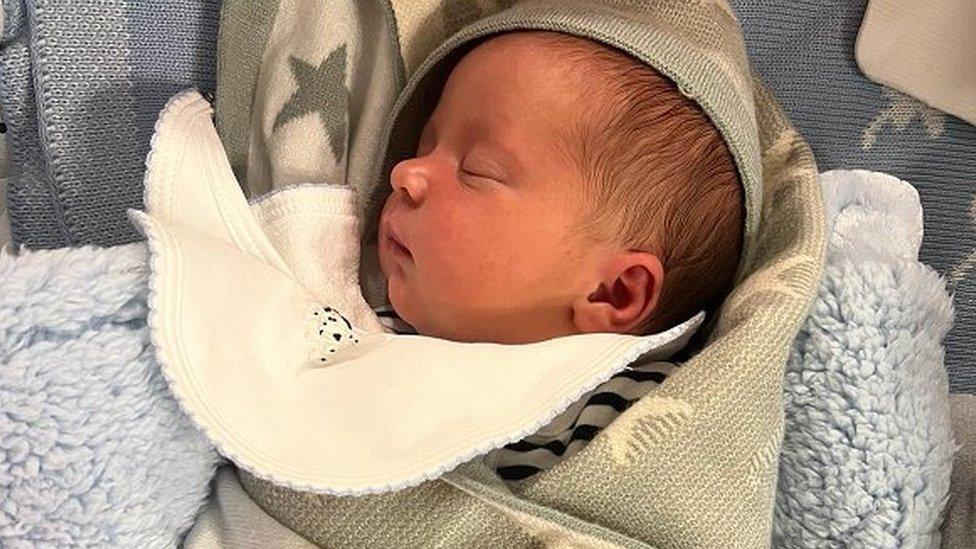
The McDonnells had asked for help from the UK government to issue a passport for Jaunty Beau so they can bring him home
Speaking before the passport had been approved, Ms McDonnell explained how Jaunty Beau had been unwell shortly after he was born and had to be rushed to hospital.
"He stopped breathing and turned blue, the doctors think he could have something wrong with his brain," she said.
"The recommendation is to get him home to be treated by doctors in Belfast but they can't move the interview forward."
Ms McDonnell said their son Max, who stayed in Northern Ireland, was "starting to struggle" without his parents.
He is still helping on the family farm milking the cows and is sitting his exams.
"He's still struggling with the death of his sister, but he's being very brave," she said.
Surrogacy is legal in Ukraine and while the McDonnell family understand some of the controversy around surrogate births, they said, following the death of Ellie, it was the right choice for their family.
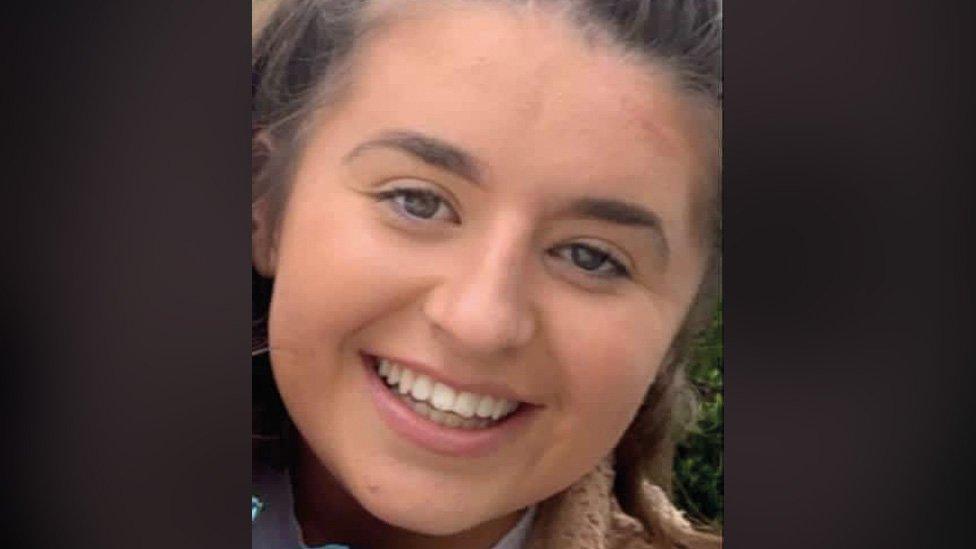
Mary McDonnell said their daughter Ellie is 'our angel guiding us'
"This is our new beginning and the next part of our lives," said Ms McDonnell.
"For us as a family it has given us hope to survive and to live again for ourselves and for Max, he lost his sister but he now has a brother.
"I go to Mass and I pray really hard but it's our way to survive and maybe take the silence out of our house.
"When a child dies, your house goes very quiet and now there's going to be a noise in the house."
Related topics
- Published22 March 2022
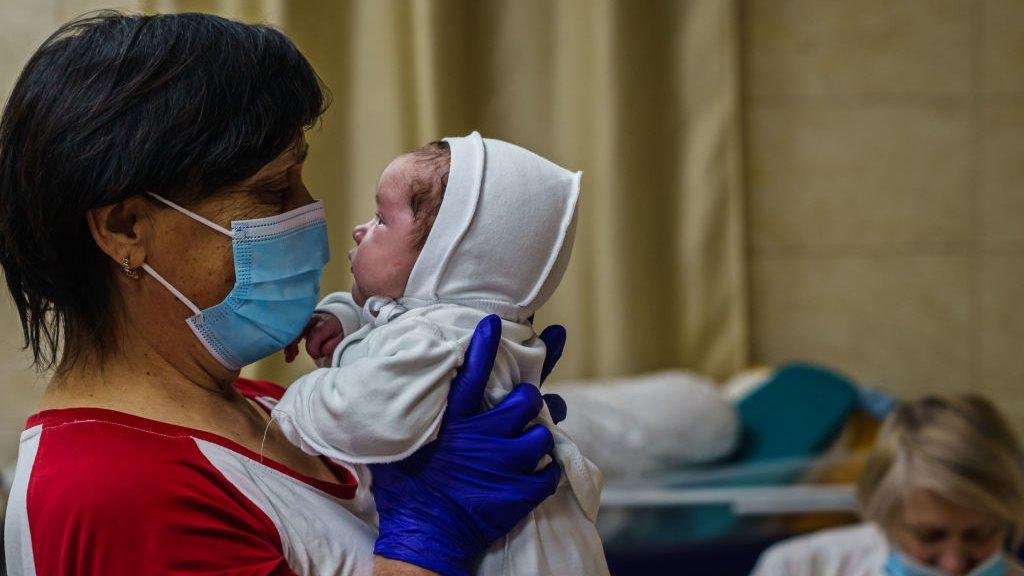
- Published26 April 2019
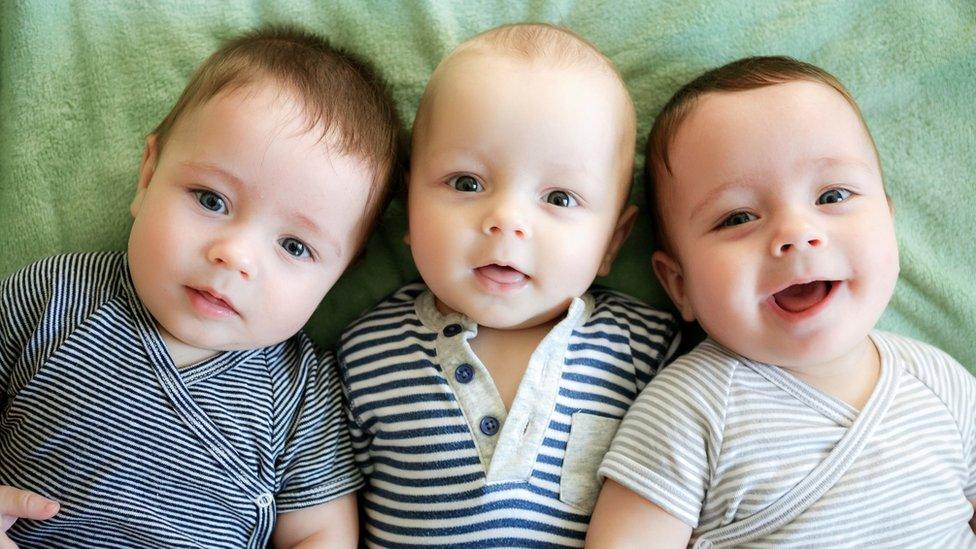
- Published13 February 2018
